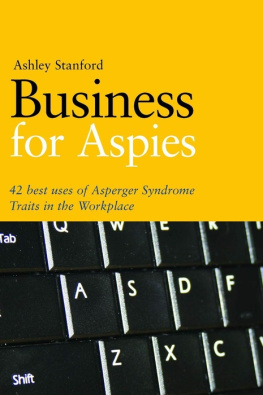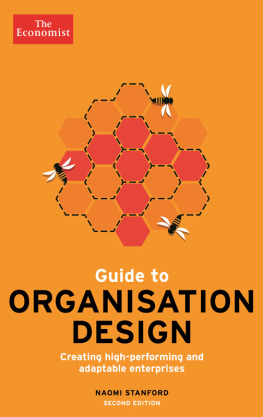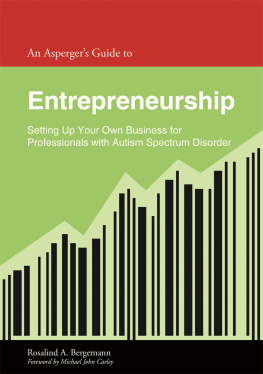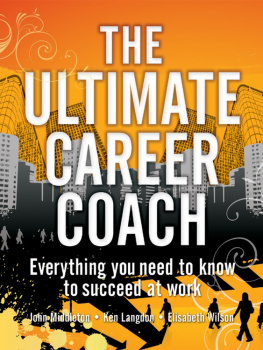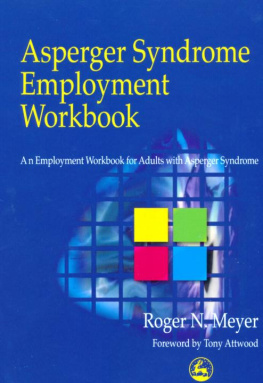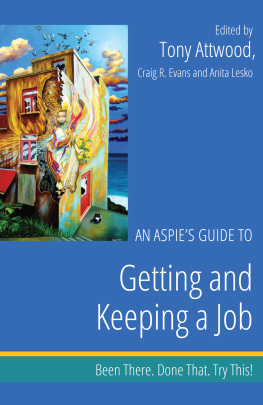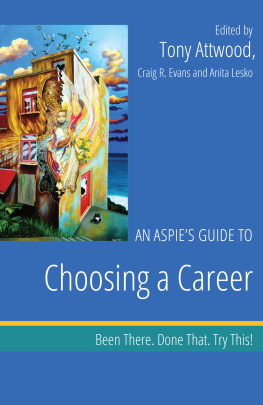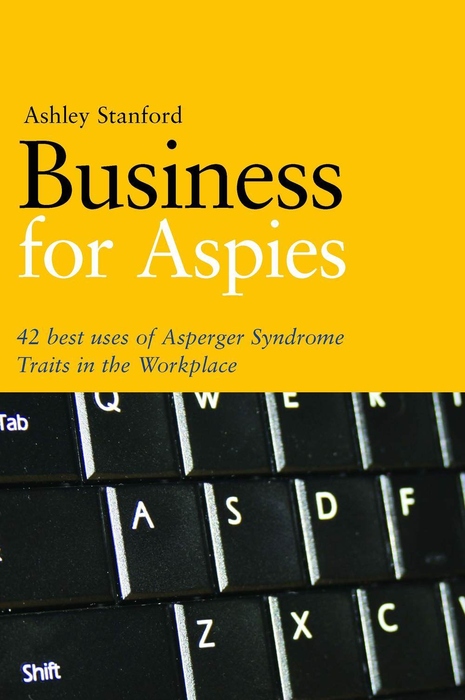All rights reserved. No part of this publication may be reproduced in any material form (including photocopying or storing it in any medium by electronic means and whether or not transiently or incidentally to some other use of this publication) without the written permission of the copyright owner except in accordance with the provisions of the Copyright, Designs and Patents Act 1988 or under the terms of a licence issued by the Copyright Licensing Agency Ltd, Saffron House, 610 Kirby Street, London EC1N 8TS. Applications for the copyright owners written permission to reproduce any part of this publication should be addressed to the publisher.
Warning: The doing of an unauthorised act in relation to a copyright work may result in both a civil claim for damages and criminal prosecution.
To Rebekah Vaisey, one of the most beautiful, vibrant tangles of aliveness I have ever met. Let your freak flag fly! And to the editor, Claire, at Jessica Kingsley Publishers who, with gentle encouragement, helped me cross the finish line.
Preface
I own and run a computer company in Silicon Valley, California. I work extensively with people who are on the spectrum in the technology sector. It saddens me every time I see someone brilliant relegated to a less challenging task due to misperceptions about ability. Since I have never been one to settle for the status quo, I have spent the last eight years searching for consistent, helpful, respectful methods of creating success for those with Asperger Syndrome (AS).
This book explores typical characteristics that define AS elaborating on each aspect while showcasing 42 different ways that your AS traits can make you an even better employee or boss. There are many traits such as failure to develop peer relationships that, according to diagnostic criteria, are impairments, yet, in the workplace, when properly recognized and properly positioned, can, as in this example, make you a focused, undeviating, project-driven employee; that is, the most valuable employee on the team.
In my work, I travel extensively and I am always seeking new talent for my little company and to figure out where to set up our next office. The more people I meet, the more I realize that people with AS have undiscovered, unappreciated talents that can be easily overlooked in the workplace. With the toughest problems, I often turn to someone with AS because I know they can focus clearly. With the most difficult, potentially emotionally volatile problems, I often turn to someone with AS because I know they have the wherewithal to stick to the facts.
As with many books, the main theory behind this work came from a well-studied expert. This theory was generated while sitting with a marriage counselor, Nedra Shumway, MFT. My husband and I sought her assistance in 2008 while going through a profound and difficult transition. Nedra had been successful at clearing away the distractions and creating a sense of safety as we worked to re-establish balance in our particularly quirky relationship.
During one session, Michael and I reached an impasse. We had a problem and all potential solutions had been considered. I would not budge. Michael would not budge. The problem we faced had no solution other than separation.
Then, as any truly brilliant therapist or perhaps philosopher might do, she took a step back and asked me to take a step back with her. She asked, Well, is there any way to see this differently? Once she pulled me from my hard-held position I was able to see that there was a flip side to the situation. Not only was my point barely even relevant, when I looked at the situation from a different angle, I felt gratitude to my husband for choosing to stay strong in his belief.
I do not even remember what my stance was, only that I believed it firmly. When I took a step back and looked at the situation objectively I was able to see aspects that had been invisible to me before. Once I saw the other side of the coin, all anger, frustration, and even the problem itself fell away.
A few days after the incident in the therapists office, I experienced the coin flip personally and it was a very pleasant sensation.
At my computer company, a client called in angry, furious even, yelling that he was extremely displeased with our product. While the error was due to someone elses error (not ours), this customer, lets call him Zach, needed to talk to someone. The employee who answered the phone was so scared that she passed the phone immediately to me, the company CEO.
I spoke with Zach and, in the span of several minutes, this man went from furious to calm to happily satisfied with the excellent customer service he had through our company. When I hung up the phone, a colleague whose desk is next to mine asked, How on earth did you do that?
I thought for a minute. I said, Every situation is like a coin. You can choose to see one side or another, the positive or the negative. I showed him the positive side of the coin.
In this situation, the positive side was that: 1. the issue was easily solved, and 2. a new version had been released since his order and now he would get the newer product as a replacement.
Nearly every situation has a flip side. I love the flip side of the AS diagnosis. The impairments become strengths; the disability becomes a talent; the persons capacity to contribute to the world, even if it is by an unconventional skill, is recognized and rewarded.
When you look at the flip side of the AS diagnostic criteria you have a much better chance at success in the massive world of gainful employment. Many of the traits that are used to define the syndrome can be also used for the benefit of job security, project completion, keeping colleagues focused on the project, and otherwise improving the companys efficacy.
The trick is first to recognize your talents, then embrace them. I hope you will find comfort and support as you read the stories and hear the examples of the many potential ways that AS traits can help, rather than hinder, enjoyable employment.
Introduction
It is my personal belief that people with AS are often underestimated, underpaid, and have an untold amount of hidden potential. More than once, this realization has caused me deep sadness. It is sad to see anyone have their life force, their ability, their potential cut off, unexpressed, unnoticed, and unappreciated.
The work you do day in and day out should be enjoyable, perhaps hard, but always rewarding. Your job will probably take up the majority of hours in your waking life. At a typical job in the US, you might spend an hour in the morning getting ready for work, eight or nine hours at work, an hour commuting, and a few hours at night relaxing from work, trying to unwind from the stresses of the day. By simple logic, if you dont like your job, you probably dont like your life.

